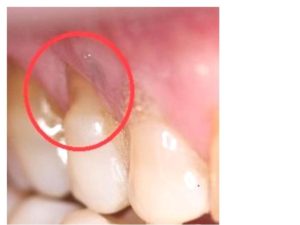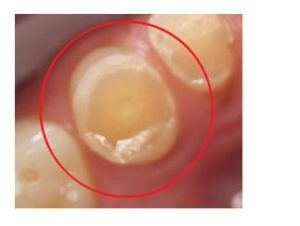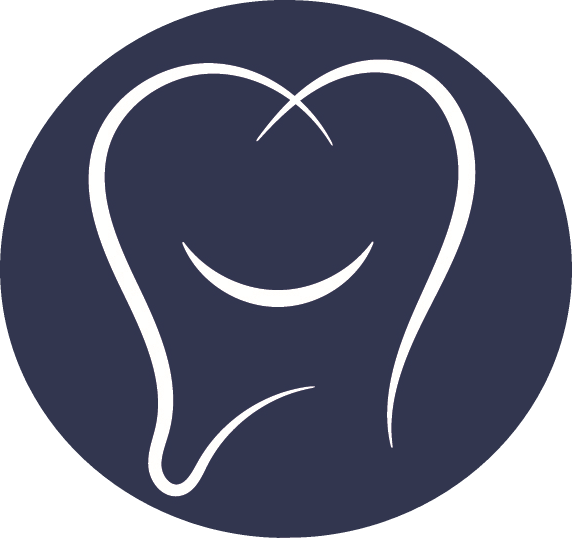
23 Oct Toughen Up Those Sensitive Teeth
A chief complaint among many patients is sensitive teeth. These are teeth that experience a brief shooting pain in reaction to cold drinks, hot coffee, sweet foods, sour fruits or even just breathing in cold air. In extreme cases, some patients can’t even handle getting their teeth cleaned in the dental office without numbing their teeth first.
When I’m about to see a patient complaining of sensitive teeth, I’m already envisioning teeth that have receding gums or noticeable wear (attrition). Gum recession will expose the root surface of a tooth, which has nerve endings that will certainly cause sensitivity.

Attrition on a tooth means that the enamel layer has been ground away, exposing the yellow dentin layer underneath. The dentin layer also has nerve endings that will elicit a similar sensitivity reaction.

Now that you know the basic theory behind sensitive teeth, we can go through some common causes of gum recession and attrition:
- Brushing too hard – irritates the gums causing recession.
- Using toothbrushes with hard bristles – irritates the gums causing recession.
- Whitening products – chemicals leaching through already vulnerable tooth structure.
- Acidic foods – chemical dissolution of enamel from constant exposure to acid.
- Cavities near the gumline – decay of enamel exposing the dentin layer.
- Grinding teeth at night – wears down the enamel surfaces of teeth.
- Periodontal disease – chronic inflammation of gums causing bone resorption and gum recession.
So what can you do about this?
Depending on your level of discomfort and the cause of your sensitive teeth, you can choose to stop doing many of the things listed above. Brushing too hard? Stop. Get a power toothbrush that stalls when you’re tempted to brush the enamel off your teeth. And while you’re buying brush heads for that power toothbrush, get the ones with super soft bristles.
Stop using teeth whitening bleach if it is causing sensitivity. Nerve damage does not look sexy, no matter how white the teeth. Avoid carbonated sodas, energy drinks and juices – not only does the acid in these drinks dissolve your enamel, the sugars in these drinks will give you a sweet dose of tooth decay.
There are numerous products that patients can apply on their teeth to diminish sensitivity. These range from sensitivity toothpastes to remineralizing chewing gums, pastes and varnishes. Results from these products vary from patient to patient and the effects are usually temporary, however, if the level of discomfort is low, then this might be all you need.
And what can your dentist do about this?
Decayed teeth absolutely need to be restored with a filling to prevent further destruction of tooth structure and to seal off the nerve endings. When the gum recession has progressed to the degree in the first photo, it may be beneficial to place a filling over the exposed root surface to help alleviate sensitivity. This treatment is also indicated in patients with periodontal disease who experience sensitivity.
Patients who grind their teeth while asleep will benefit from wearing a night guard to prevent further wear. If there is already severe attrition, patients may need crowns placed on the worn teeth to cover the exposed nerve endings.
I hope this helps further your understanding of sensitive teeth and perhaps give you some ideas on how to alleviate the discomfort.
Phuong Luu, DDS


